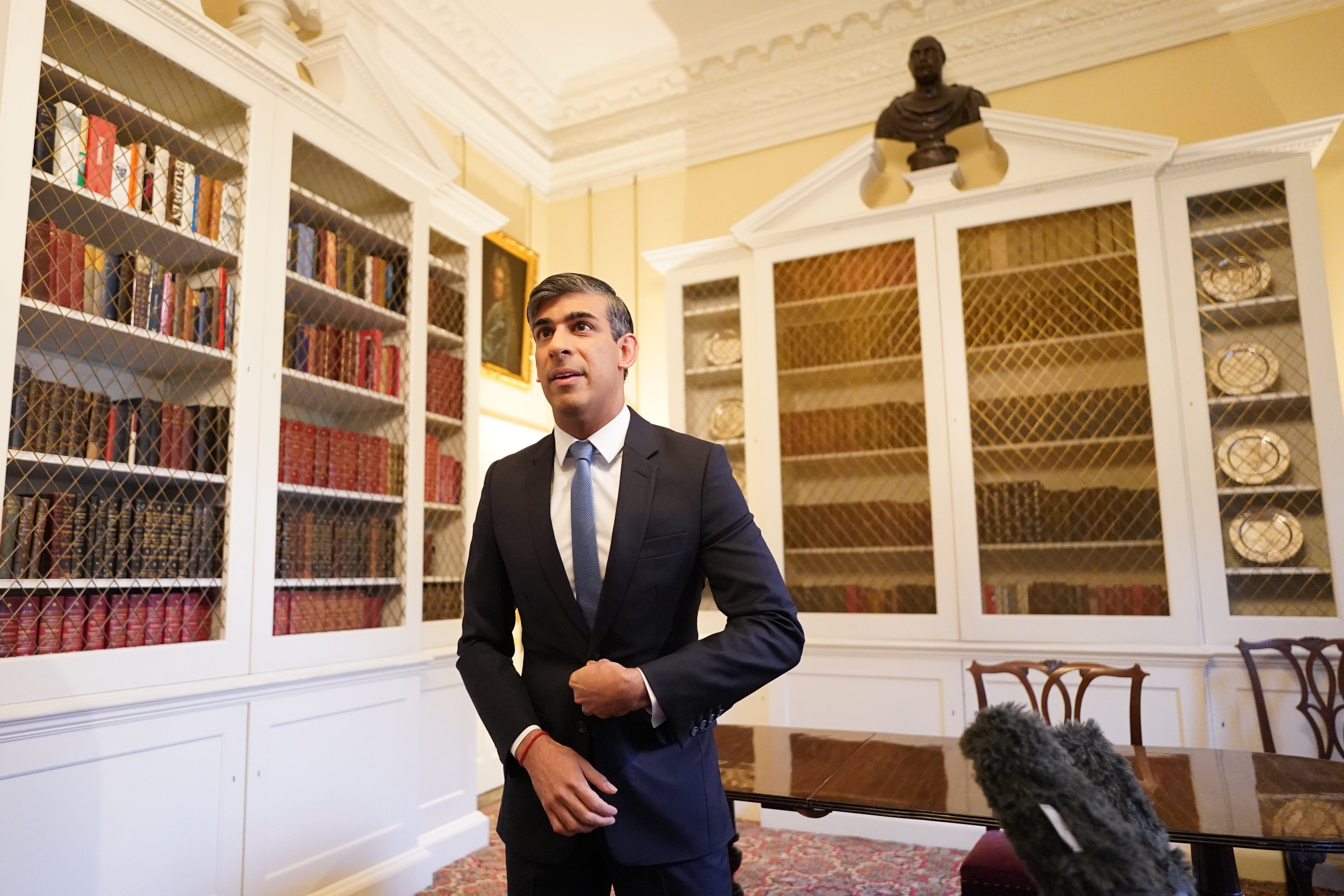Is the economy really going ‘gangbusters’, as Rishi Sunak hopes?
A snap summer election is less surprising if we look beyond inflation and delve deeper into Britain’s economic predicament, writes James Moore. Rishi Sunak may have realised this is as good as it’s going to get in 2024


With a mountain to climb to pull off an election victory, Rishi Sunak is hoping a resurgent economy will provide some firm handholds on the way to the top – perhaps even a North Face coat to insulate him from critics.
Lately, it has delivered. UK plc grew by 0.6 per cent in the first three months of the year, against the Reuters consensus forecast of 0.4 per cent. This was faster than in the US, France and Germany – something Mr Sunak highlighted as raindrops slid down his suit in Downing Street. It also beat the Eurozone as a whole.
Exiting last year’s shallow recession with the fastest growth in three years looks like a good start to the climb. While the International Monetary Fund issued a warning about Britain’s fiscal position, it nonetheless boosted its full-year forecast to growth of 0.7 per cent – not exactly “going gangbusters”, as Mr Sunak quoted during his first round of election interviews on Thursday – but much better than last year.
Also in Mr Sunak’s favour is that inflation is now down to 2.3 per cent. The latest fall didn’t live up to exceptions, and there were several nasties lurking in the figures. But the prime minister will use the headline number – which is conveniently close to the Bank of England’s 2 per cent target – to claim “the plan is working”. Remember, it peaked at over 11 per cent and was at 10.7 per cent when the PM made halving it one of his five pledges.
What about jobs? Here, the numbers look less good. Unemployment is rising, and while still very low by historic standards, it is expected to continue to do so through this year. In the PM’s favour is the fact that wages have been motoring. Excluding bonuses, they increased by an average of 6 per cent during the same period, well ahead of inflation. But that number is expected to fall.
That GDP number also covers the economy as a whole but, if you look at per capita GDP, it is down by 0.7 per cent compared to last year. The overall number is up because of an increase in population. But as individuals we are still, on average, a bit poorer than a year ago.
As for those nasties lurking in the inflation figures, they make it highly unlikely there will be any interest rate cut ahead of polling day. They might not even be cut by August. Those who talked up the possibility of as many three cuts this year have gone quiet.
Mr Sunak will also have to deal with crevices on his route to the top: economic growth is predicted to slow to 0.2 per cent during the current quarter, according to the Bank of England. Forecasts are notoriously unreliable, but if we assume this one is broadly right, Mr Sunak’s decision to go to the country now makes more sense. Anything less than the current 0.6 per cent would give Labour the chance to say the economy “is starting to slow”.
Deloitte’s consumer confidence series has improved lately but was still in negative territory at -11 in the latest update. It also indicated that consumers’ views of the economy and, crucially, their job security have been deteriorating.
Another warning sign has just been delivered courtesy of the latest composite Purchasing Managers Index, a widely followed indicator covering business activity, which unexpectedly dropped to 52.8 in May, from 54.1 in April. That still indicates growth – anything above 50 does – but is in line with the Bank’s analysis that growth will slow. It was also short of the consensus forecast of 54, and the dominant services sector was a notable weak point. This series does move up and down and this is just one month.
Naturally, Mr Sunak will choose to highlight any figures that show the government in the best light, while Sir Keir Starmer will seek out bad omens, even ones that would be found in an economy growing twice as fast.
However, Mr Sunak’s surprising decision to go to the country may in part be based on a sober analysis of where Britain is now and where it will be in six months’ time. He may have realised that this is as good as it’s going to get in 2024.
Join our commenting forum
Join thought-provoking conversations, follow other Independent readers and see their replies
Comments
Bookmark popover
Removed from bookmarks